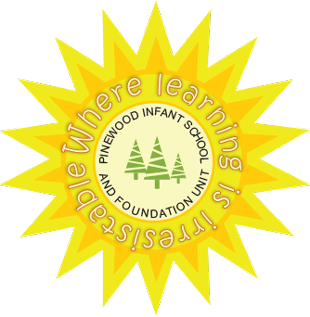Reading
Ofsted recognised our reading curriculum as exemplary. At Pinewood we have rigor and a continual drive to hold reading at the highest point of priority. This ensures our children achieve very well in reading and leave Pinewood being about to fully decode, comprehend and show passion for books with a true love of reading. Everyone in school holds reading at the heart of all that we do. Our highly enriching reading environment ensures our children our children really want to learn how to read and our parents and carers work in partnership with us to ensure the skill of reading is practised at home.
Our vision for reading is that children leave KS1:
- with a true love of reading and quality texts;
- able to decode and reading fluently with good comprehension skills for their age;
- understanding what it means to be a good reader and with a belief that they are good readers;
- frequently choosing to read for pleasure;
- with a good knowledge of books and authors;
- having experienced our top Pinewood favourite children's books per year group (brilliant books).
If pupils cannot read with accuracy, automaticity and understanding, they will fall behind their peers and be incapable of accessing the curriculum as they move through primary school. Reading accurately, decoding and fluency must be given total priority in early years and KS1. Children take home books to read according to their level but they also take a book home each week to read for pleasure from our super duper double decker library bus. Throughout the school day there are many opportunities for reading. Children experience reading in many different ways - through shared reading sessions, individual reading, guided reading, opportunities to read stories individually or with a friend on the library bus and children have opportunities to experience the best of stories in their classes at story time.
But we need the help of parents too. Daily practice of reading leads to automaticity. You could compare the reading process to driving a car. When we drive, it becomes so natural over time that we do not even have to think about changing gear, indicating or using the pedals. We need this level of automaticity in children's reading and phonics. We want them to be so fluent with decoding words that their working memory is freed up to focus on the meaning of what they're reading.
Reading is so important to us at Pinewood and our children leave us as super readers!
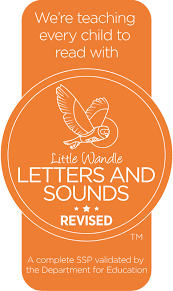
At Pinewood, we follow the ‘Little Wandle’ Phonics Scheme where books are matched to the phonics that has been taught in school.
Your child could take home three books every week:
3. A library bus book (each class has a library bus day and these books are to be shared with someone at home)
Our Reading Track Rewards System
At our school, we believe that regular reading at home plays a vital role in helping children become confident, fluent readers. To encourage and celebrate this important habit, each classroom (Foundation 2 - Year 2) has a Reading Track—a 100-square path that tracks each child’s reading progress.
Every day a child reads at home and records this in their diary, they move one step forward on the Reading Track. As they reach certain milestones along the way, they receive special rewards and recognition to celebrate their effort and progress.
We encourage families to make reading a regular part of their daily routine. Reading at least five times a week makes a big difference—it helps children develop stronger comprehension, expand their vocabulary, and build a lifelong love of reading.
Together, we can make reading a fun and rewarding journey for every child!
We follow the flow maps below for the reading rewards system...
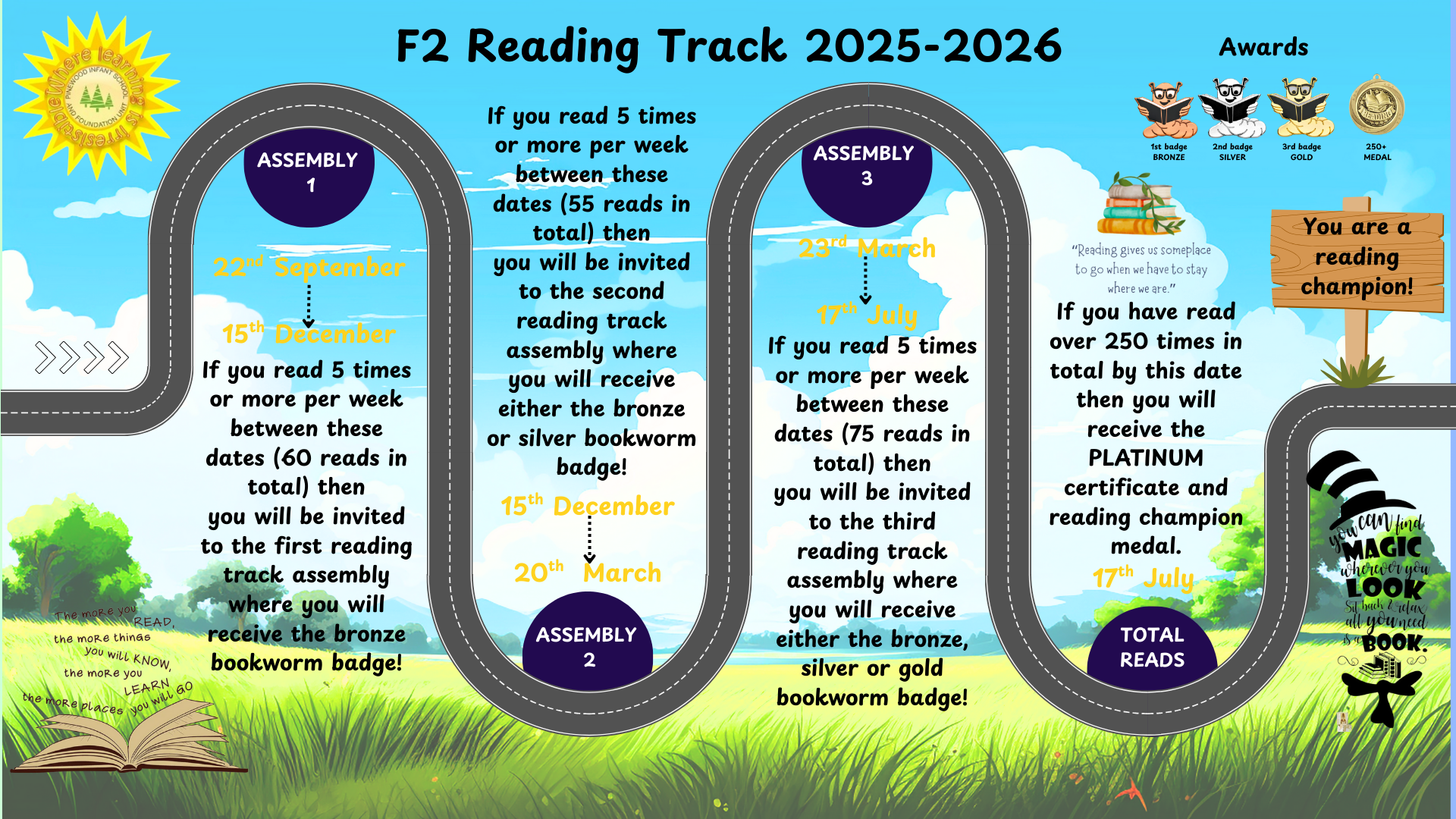
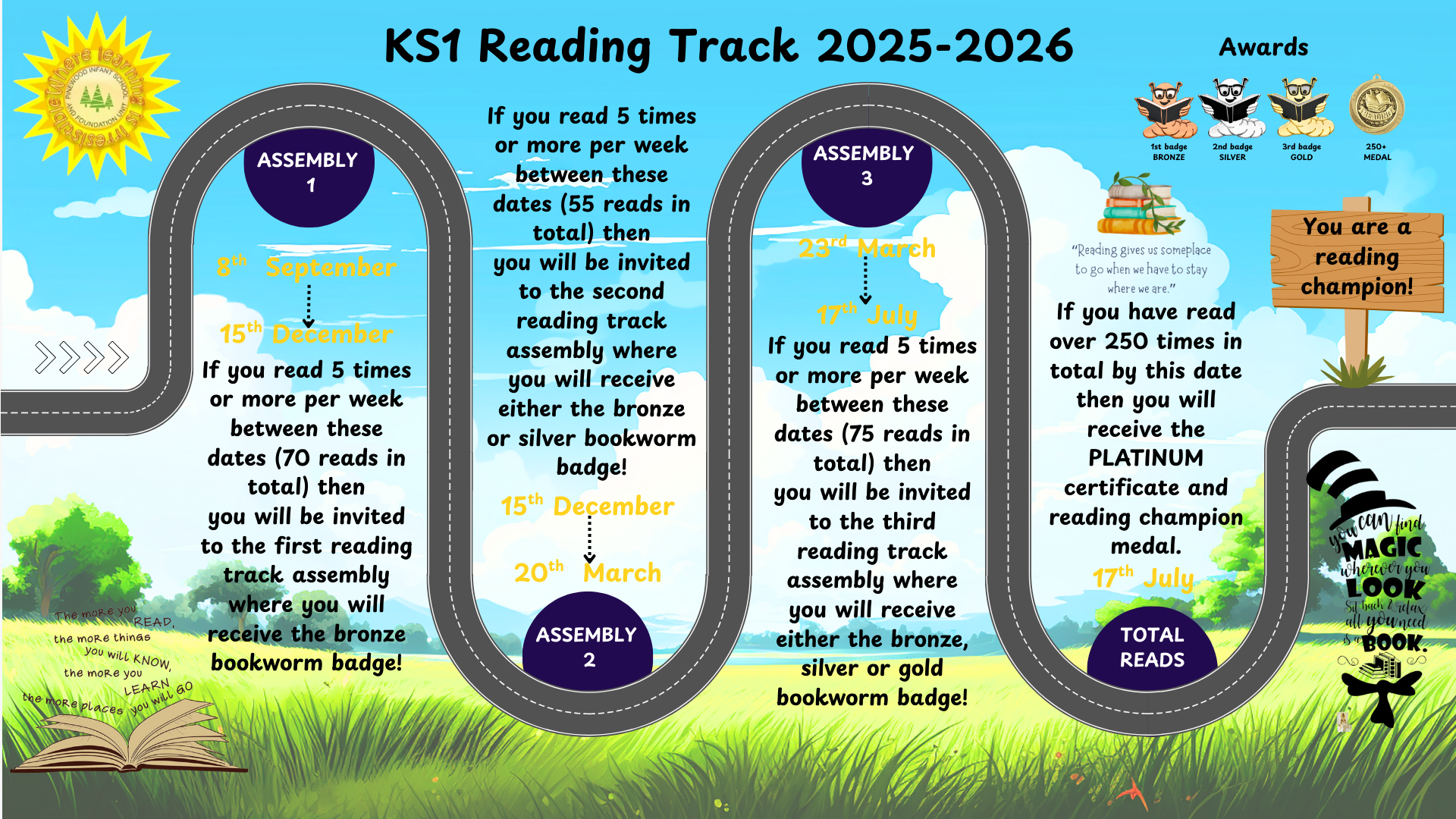
Some top tips to support you helping our children to become readers:
·Encourage the children to handle the book and point themselves. It is very tempting to point for them but try not to!
Sayings and phrases we use:
‘Copy me’ and then put your hand to their ear to show it is their turn
‘Blend in your head’ sounding out words quietly in head without sounding them out out loud (only when ready)
‘Let’s read that sentence again and make our reading sound like talking’
‘How do you know it says . . . .? How do you know it does not say . . . ?’
Grapheme – One letter representation of 1 phoneme (sound) e.g. c for cat
Digraph – 2 letters together that make 1 sound e.g. hill feet
Reading Volunteers
We are always looking for reading volunteers to help our children read in school – we provide training, and our current volunteers find it very rewarding. The children absolutely love it!
If you could spare a couple of hours each week to help us, please contact Ms Otter – it may even help you support your own child at home with learning how to read and certainly gives you a real insight into school life.
Another way we encourage reading at home is with the reward of the OTTER box weekly in each class. OTTER stands for:
Our Time To Enjoy Reading
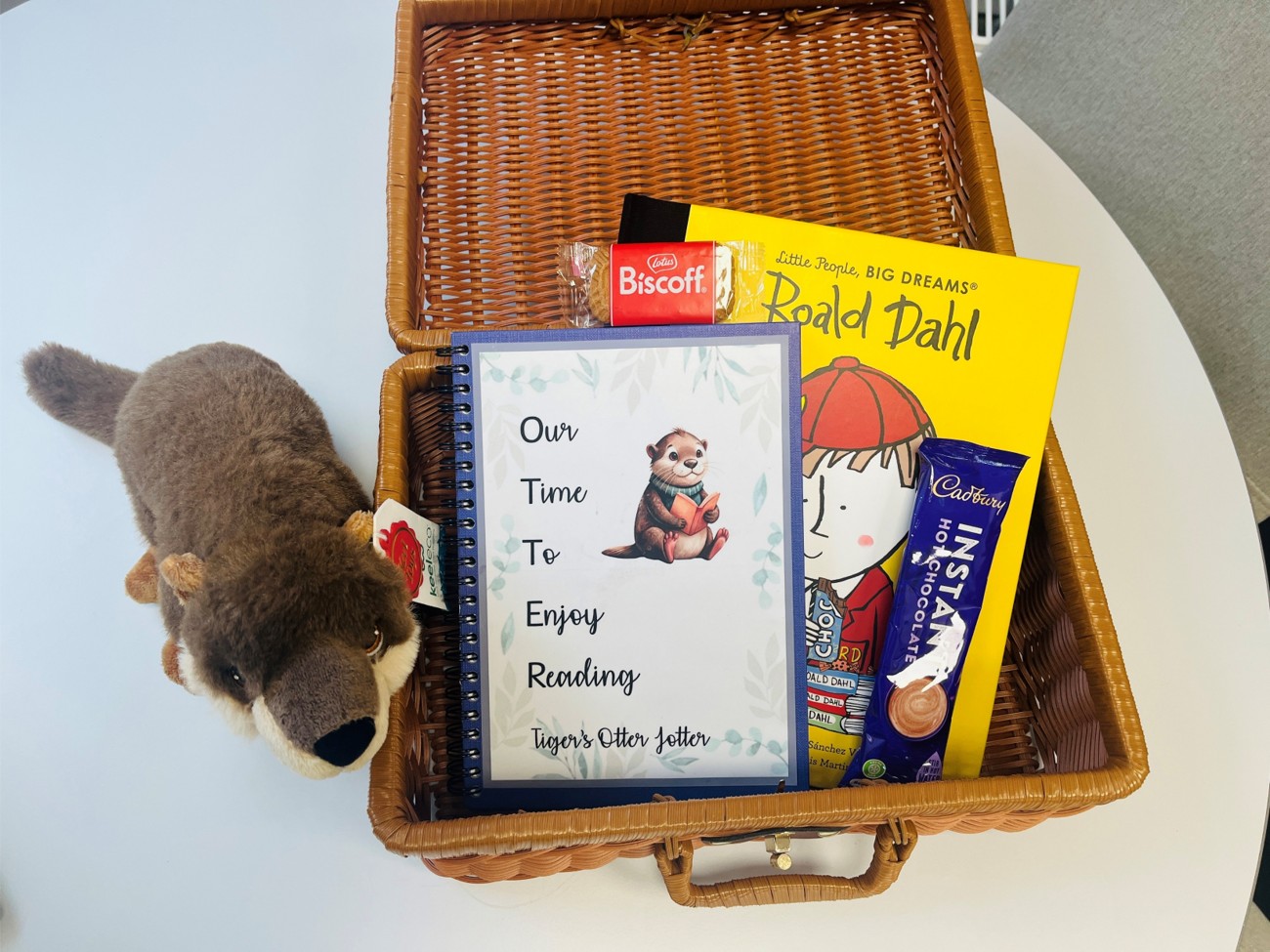
A child is chosen each week who has read at home well or has shown great progress in school with reading. They can snuggle up with the otter and a hot chocolate and biscuit whilst sharing a very special book from the suitcase with you. The children love this!
